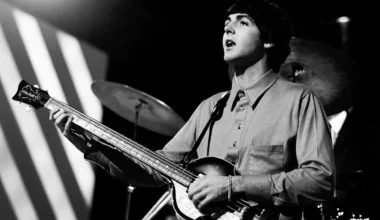As rock music began to veer toward bloated pomposity in the late 1960s, a few artists rose to prominence who were determined to go against the grain. They added darkness and rage to the mix and stretched the formula farther than listeners could have imagined at the beginning of the decade when the future seemed bright. Even though Ritchie Blackmore and Jimi Hendrix jumped headfirst into the darkness, Hendrix may have been the first to make the guitar truly heavy.
Blackmore is a talented player who might not receive all the recognition he merits. He was the driving force behind Deep Purple and the main factor in the formation of the metal subgenre. As a result, a lot of his methods—such as dive bombs, string tapping, and twisting, piercing solos—have since proliferated in the genre. Reminiscent of his early attire, he was a true wizard of the guitar, as evidenced by the force of his sonics heard in timeless pieces like “Speed King.” His body of work goes far beyond the well-known “Smoke on the Water.”
Drama unites all of the projects created by this restless artist who has made it his mission to push himself to new heights. His oeuvre is diverse, ranging from metal to medieval and baroque music. There was a theatrical edge to Hendrix’s work even before the days of playing with Screaming Lord Sutch. Sutch was an insane horror-themed vocalist and future founder of the Monster Raving Loony Party. Naturally, it would become inseparable from Deep Purple’s and other pioneering metal bands like Black Sabbath and Led Zeppelin’s.
Music with depth has always drawn Blackmore, whether it be his own or that of others. He admires musicians who create complex sounds rather than bland pieces that only express what is immediately apparent. Additionally, he was able to do something wholly unique thanks to this position. It allowed him to separate himself from the multitude of blues-loving guitarists of his time.
Of course, taking such audacious actions also requires a healthy dose of that perfect combination of assurance and conceit. This quality has appeared time and time again throughout the history of music, with every unquestionable great having it. This also implies that Blackmore has criticized many of his well-known peers, such as The Rolling Stones, whom he views as “idiots,” due to his unbridled personality.
In 1978, Blackmore provided one of the most insightful interviews of his career, talking to Trouser Press. He discussed everything from why he was “better than” the entire punk genre to what he looks for in music. The latter was especially fascinating since it featured him criticizing one of the most well-known bands ever for the kind of music they make.
He once said, “You have some very strange big groups in America.”
When asked if he was referring to Kiss, he unexpectedly said he was a fan of the masked New Yorkers because they own up to their shortcomings as musicians and don’t give a damn about what other people think. “I’m talking about middle-of-the-road bands that come out with that lazy, laid-back cocaine beat,” he continued. The DJs play it nonstop because they adore it.
Blackmore then turned his attention to the band he believed to be the worst offenders—not the Eagles. This was a fitting description of a popular music genre at the time. It was none other than Fleetwood Mac, who had just released Rumours, their hit pop-rock single, at number one. He liked them as people, but he wasn’t into the extreme lack of intensity in their music. There are, in fact, a lot of differences between his and their work.
“Funny you should mention them,” he chuckled. Pleasant individuals, but I’m not sure I agree with what they’re doing. However, there don’t seem to be any reservations in the rest of America. It’s turned into something mellow, which bothers me. I enjoy loud music with a dramatic quality.








